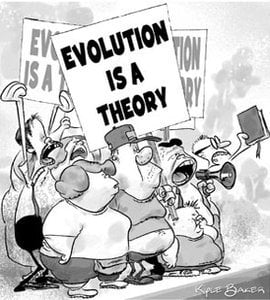Originally published in the Daily Maverick
 This is a column about child abusers and terrorists, otherwise known as Catholics and Muslims. It’s important that I not speak to any Catholics or Muslims in the course of planning and writing this column, because it’s just possible that they might introduce annoying details that intrude upon the prejudices my column will play into.
This is a column about child abusers and terrorists, otherwise known as Catholics and Muslims. It’s important that I not speak to any Catholics or Muslims in the course of planning and writing this column, because it’s just possible that they might introduce annoying details that intrude upon the prejudices my column will play into.
Details they might introduce could include the fact that even if some Catholics were paedophiles and some Muslims terrorists, that fact would be a contingent rather than a necessary one. In other words, this means that you’re not obliged to be a child abuser by virtue of your Catholicism or a terrorist by virtue of being a Muslim.
In fact, it might well be the case that you’re explicitly told to not be those things. If you claim to be acting in accordance with that religion, many would be quick to point out that you harbour a misconception in that regard, and that you’re simply a child-abuser or terrorist, no matter how grandiose you think your motivations are.
It might also be the case that if a writer, or radio or TV presenter insisted on referring to those crimes as “Muslim crimes” or “Catholic crimes” that people would correct you, saying that a caricature is a lazy and inaccurate way to present a situation.
Hell, they might even say that they – as Catholics or Muslims – feel offended at the misrepresentation, and that you’re undermining their efforts to fight the harmful stereotypes about them that are prevalent in much media. You might be called an Islamophobe, and whatever one might call the Catholic equivalent of that.
Satanists, on the other hand, are fair game. Even though we are ostensibly guaranteed freedom of religion by our Constitution, a minority religion like Satanism (and to a lesser extent, various Pagan religions) are almost universally a shorthand for evil – largely because what people understand by “Satanism” is exactly what Christians would want it to be.
In other words, media discourse (and therefore, public understanding) around Satanism is akin to reading a Tottenham Hotspur supporter’s analysis of Arsenal’s virtues (for those who don’t know football, this is sort of like asking a Soviet prisoner to recommend accommodation in the Gulag).
For a religion that exists in multiple forms in any case, understanding it through the lens of its strongest critic can never conduce to a sensible reading. And sadly, it’s exactly the Christian reading – with its concepts of “devils”, “evil”, and “sacrifice”, that give rise to confused and troubled kids deciding that it’s time to skin a rabbit or set fire to a friend, as happened to Kirsty Theologo.
The killers in this case say as much, citing a Christian text as inspiration for their deeds. Tellingly, they don’t cite any Satanic sources or doctrine, and the reason for this is blindingly obvious: they have absolutely no idea of what Satanism is, outside of the caricature of it that has been created by Christians, and then reinforced by a largely secular media.
And instead of talking to Satanists, those who report on these sorts of things tend to talk to clergy or the likes of Donker Jonker, whose career progression from Ghostbuster to homeopath would come as little surprise to those of us who’ve always found him about as reasonable as Deepak Chopra, or perhaps a talking parrot.
Or you’ll hear from someone who has lived through some personal hell involving drugs, or rape, or both – and who identified that trauma as owing to Satanism, simply because their abuser wore too much eyeliner and listened to heavy metal. Saying it doesn’t make it so, and we should be more careful to avoid harmful stereotyping of a minority religion.
Whether of the atheistic or theistic variety, sacrifices are a very uncommon ritual for Satanists. Where sacrifices are performed, they would be of non-human animals rather than people – behaviour that is fairly common in this country of ours. Contrary to competing propaganda, the members of the largest Satanic church (the Church of Satan) don’t even believe that Satan exists, so would have no reason to kill anyone to curry favour with Him.
Of course much Satanic discourse, and even some dogma, is in response to the characterisations of Satan in the Bible. Satanism as a religion (or a set of religions) would surely not exist without Christianity. But this doesn’t mean that all or any of the things Christians might say about what Satanists do or believe are true, or that there is any more reason for these views to be truer than any other views on the topic.
These distinctions are important for reasons other than simply avoiding hyperbole, and encouraging responsible journalism. Just as putting up with offensive speech is where we demonstrate our full commitment to freedom, respecting the most downtrodden religions is where we get to earn respect for our religion, if we have one.
Even more important, though, is the contribution sober discourse on these sorts of topics can play towards addressing genuine problems rather than fantastical ones. It’s not ideal to be living in a country where an MEC for Education can propose task-forces against “the occult”, because if it’s children with psychological issues you’re trying to help, looking for occult causes is looking in the wrong place.
Likewise, we waste time in courts, or in policing, when we entertain fantasies regarding supernatural agents being responsible for a tragedy. As soon as someone introduces those variables, it’s already clear that regardless of whether they need to be incarcerated, they also need counselling and/or medication. There’s no point in wasting court time hearing about it, though, unless the courts have some sort of deal with the tabloids that we’re unaware of.
This isn’t to trivialise the crimes committed in the name of Satanism in the least. It’s exactly because they are committed in the name of a confused understanding of Satanism that it’s important to address the confusions. Both so that we can more readily address the root causes of the crimes, and also for the same reasons that it’s wrong to stigmatise Muslims as terrorists.
After all, freedom of religion doesn’t mean you get a free pass on lying about your competition.
 I recently discovered Betteridge’s Law, which is a rather cool adage that states “any headline which ends in a question mark can be answered by the word no“. And that’s the point of view many of you might have with regard to the headline I chose for this blog post. You might say, atheism is simply a lack of belief in god(s) – it entails no other propositions.
I recently discovered Betteridge’s Law, which is a rather cool adage that states “any headline which ends in a question mark can be answered by the word no“. And that’s the point of view many of you might have with regard to the headline I chose for this blog post. You might say, atheism is simply a lack of belief in god(s) – it entails no other propositions.














